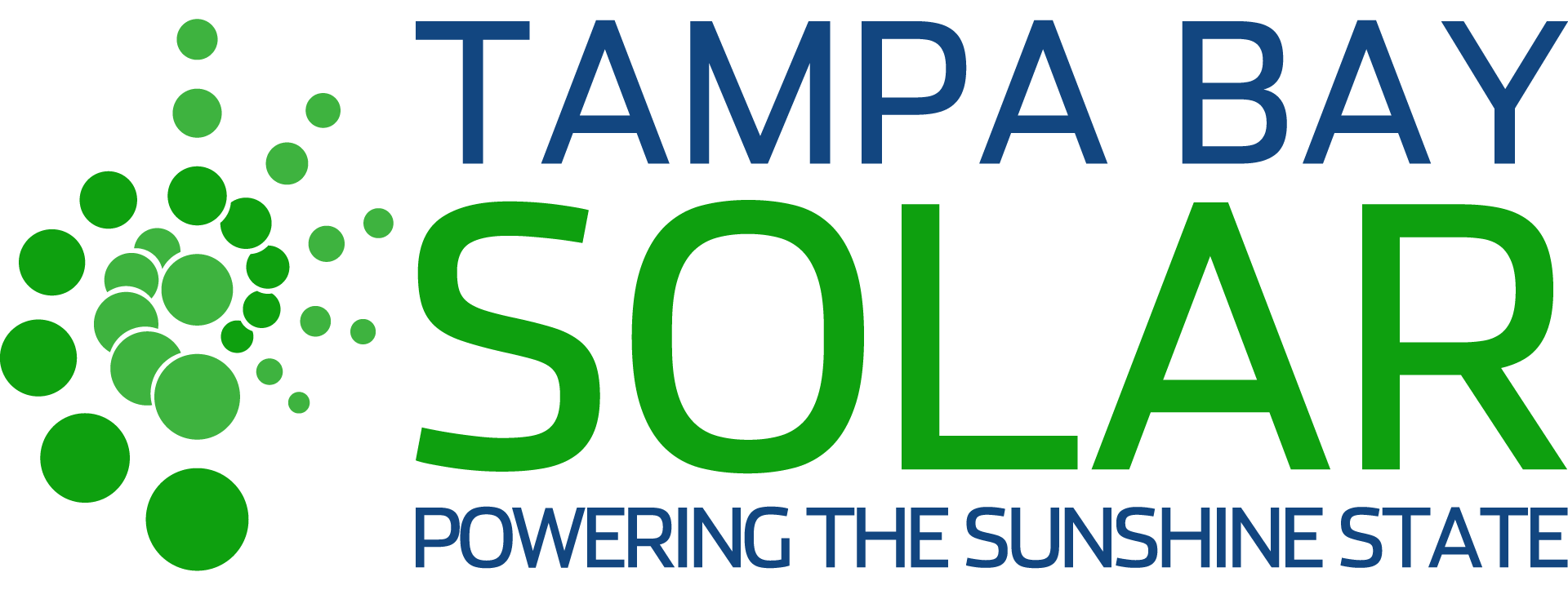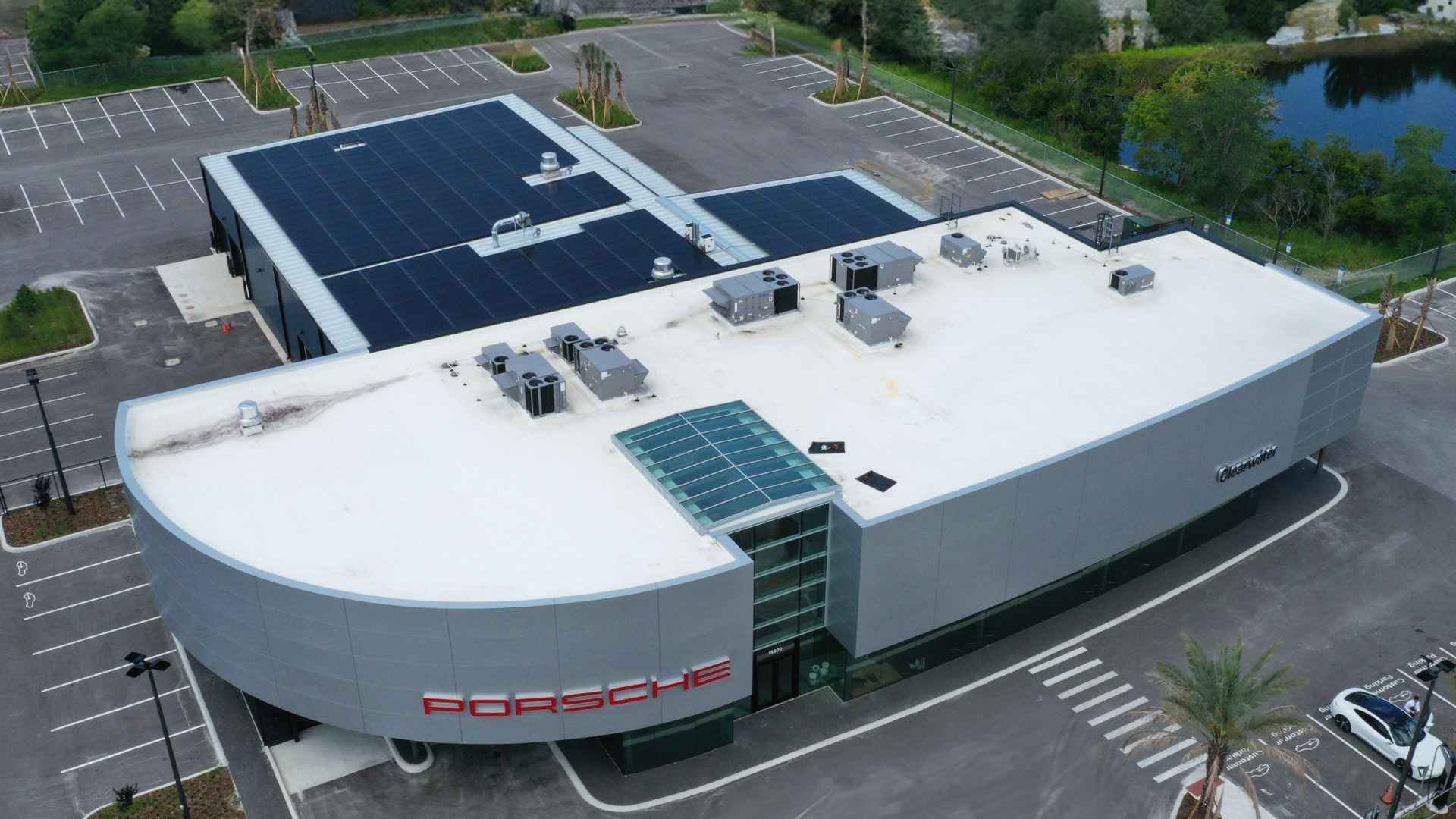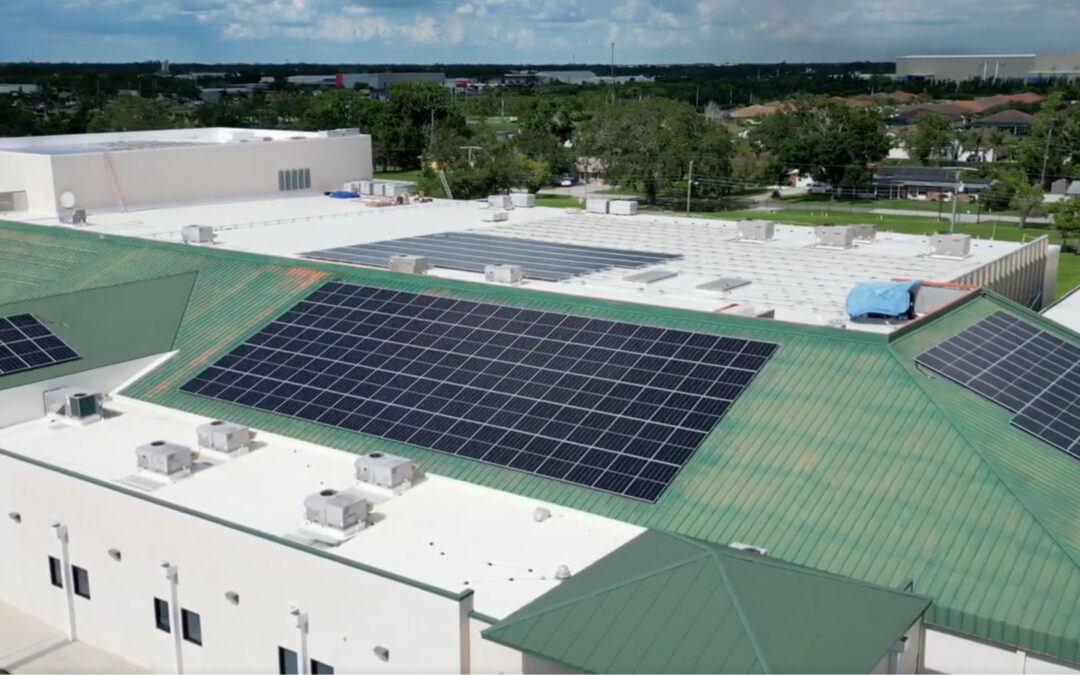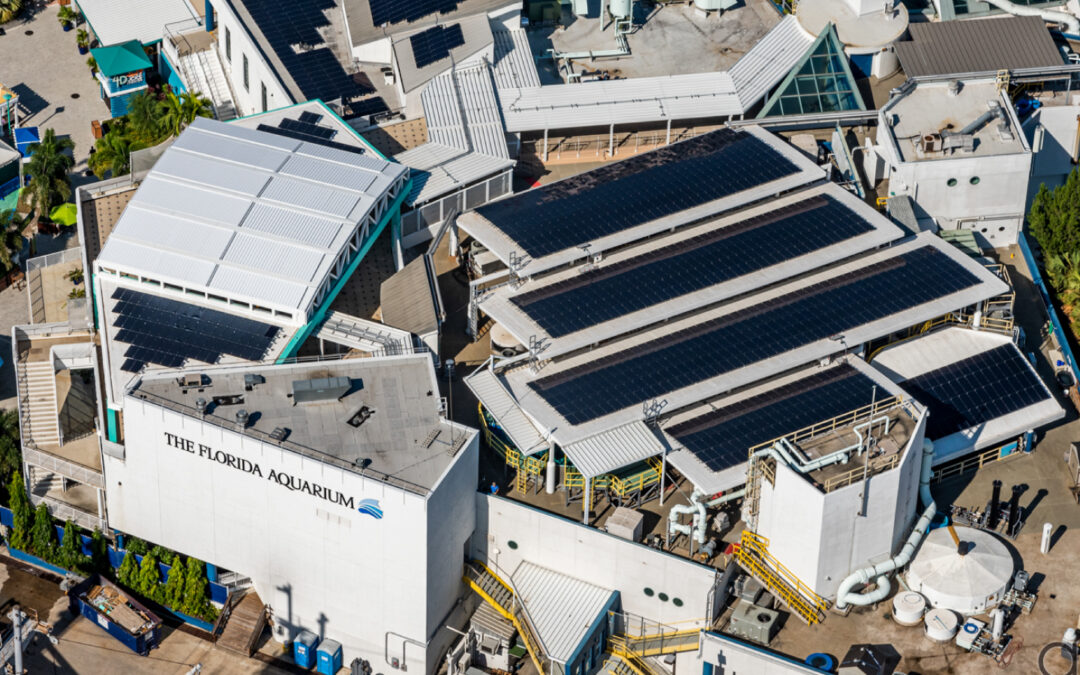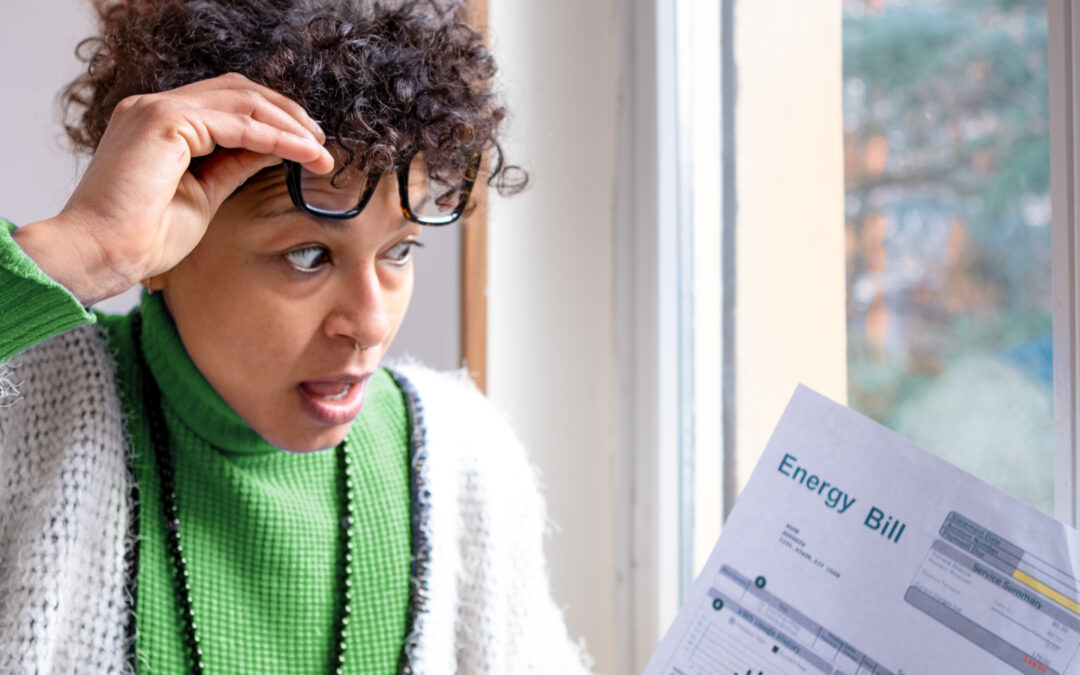Ask specific questions to ensure your commercial unit is best suited for solar panel installation. By doing so, you’re saving costs and making a significant environmental impact. These inquiries will help determine if the system fits your needs, providing peace of mind regarding your investment. More importantly, it reaffirms your strong commitment to sustainability, as solar energy is a clean, renewable source that significantly reduces your carbon footprint. By engaging in this process, you’re taking a proactive step towards a greener future, demonstrating your dedication to environmental responsibility.
1. Location: How Much Sunlight Does Your Roof Receive?
Assessing the suitability of solar panel installation for your commercial unit involves crucial considerations, with sunlight exposure topping the list. Your geographical location determines the sunlight received, directly impacting solar panel efficiency. Engaging with reputable solar panel companies like Tampa Bay Solar in Florida provides access to solar suitability checkers, facilitating informed decisions. By scheduling a consultation with solar experts, you can ascertain factors like solar irradiance, roof orientation, and potential shading, which are crucial for optimal solar energy harnessing. This professional guidance ensures you make the most informed decision for your commercial unit, giving you the confidence that you’re making the right choice for your business.
2. How Much Is Your Energy Consumption?
Understanding your energy consumption patterns is equally vital. Evaluating past energy bills helps gauge the feasibility of solar adoption, particularly in regions with high electricity costs. Solar proves financially advantageous for commercial units, offering potential savings by offsetting utility expenses. Transitioning to solar energy curtails current expenditures and ensures a stable electricity rate, promoting long-term savings while embracing eco-friendly practices onsite. Consulting directly with Tampa Bay further refines your understanding and aids in navigating the complexities of commercial solar panel installation, ensuring you make a sound financial decision for your business.
3. What Type of Roof Do You Have?
Your roof type is crucial when deciding if solar panels can be installed. They work best on durable materials like composite or asphalt shingles, concrete tiles, or standing seam metal roofs. Even if your roof is constructed from materials like wood shake, slate tile, or clay with mortar, or if it’s made of composite metal/stone-coated steel, going solar is still feasible with the right expertise in installation. Selecting a solar professional experienced in installing panels on diverse roof types is essential, as the choice of mounting hardware significantly impacts installation quality and longevity.
4. Will Your Roof Need a Replacement?
Ensure that your commercial unit possesses a suitable roof for solar panel installation, as not all roofs are compatible. It’s imperative to prioritize a robust roof in good condition, capable of withstanding the additional weight and lasting for the foreseeable future. Before proceeding, assess factors such as age, structural integrity, and compatibility with commercial solar panels. If your roof falls short, consider replacing it before transitioning to solar or exploring alternatives such as ground-mounted systems or solar carports. Remember, high-efficiency solar panels can offset the cost of a roof replacement within five years post-installation, making strategic planning essential.
5. Policy and Zoning Restrictions
Policies vary by location and can significantly affect the adoption of distributed energy and metering practices. Interconnection regulations can affect the number of solar panels and the system size you can install. Thus, thorough research is crucial before starting a construction project to ensure these factors are considered in your design. Municipal zoning regulations also impact solar installation, so it’s wise to confirm the absence of restrictions or limitations that could hinder your project.
It’s crucial to recognize that high-efficiency solar panels excel in converting both direct and indirect sunlight into electricity, ensuring functionality even on cloudy days. When contemplating solar for your commercial unit, consulting with a solar expert can provide estimates regarding the energy your system will produce, offering insight into potential savings. In regions susceptible to severe weather conditions, evaluating the durability rating of the panels under consideration is essential. Tampa Bay panels, for instance, have emerged as top performers in durability testing, indicating their ability to withstand harsh weather elements effectively.
Investing in solar panels to cut electricity costs depends on various factors. These include the amount of direct sunlight your location receives, the size and condition of your roof, upfront installation costs, minimal maintenance expenses, and the cost of the electric panel. The effectiveness of your solar energy system hinges on these elements. Contact Tampa Bay Solar in Florida today to explore your options and kickstart your journey toward sustainable energy.
